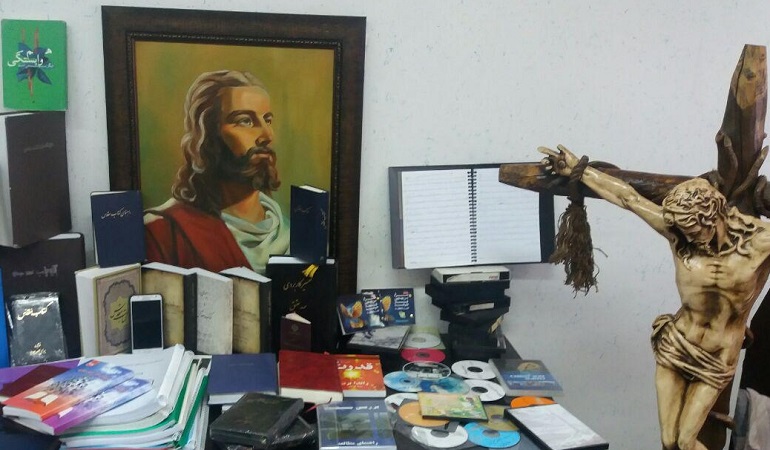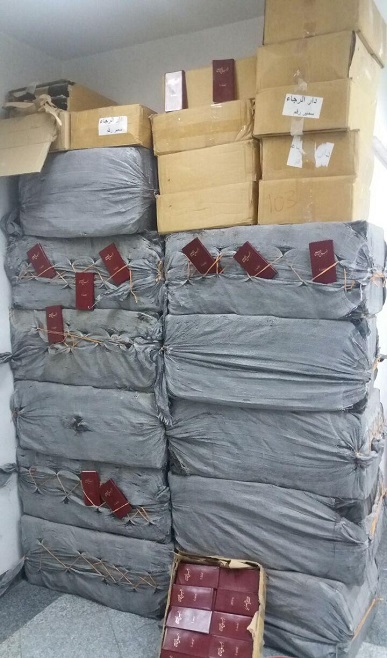
Photographs released by Iran’s Revolutionary Guard showing large quantities of confiscated Christian materials were a “publicity stunt” that reflected the Iranian regime’s fear of Christianity, says religious freedom advocate Mansour Borji.
Borji, from advocacy group Article 18, told World Watch Monitor that the photographs, which were initially released in July, were meant as a deterrent to stop Christians from meeting over the summer months, and demonstrated the regime’s “disrespect” for religious freedom, despite its claims to the contrary.
He described the news release by the Iranian Revolutionary Guard as “intentionally ambiguous”, giving “no clear indication of when the confiscations occurred, who was arrested or what’s going to happen”.

According to Mohabat News, the confiscations followed the arrests of several Christians in the capital, Tehran, and the nearby towns of Rey and Pardis. But no further details were given, and Borji says it is entirely possible that the materials were seized during earlier raids.
“One important factor in this story is that the news is published not by the judicial authorities or the Ministry of Intelligence, but by the Revolutionary Guard, which is military organisation responsible for maintaining the stat security,” Borji said. “I think the bigger question is why this military institution now seem to be mandated with the responsibility to crackdown on house-churches, and why they blow the trumpet about the arrest of Christians and the confiscation of their religious material?
“Why would a secure and stable government be so troubled by New Testaments and books on Christian discipleship? How can they claim to have respect for the rights of religious minorities, and then parade Christian literature as evidence of criminal activity?”
Borji also suggested the Iranian authorities would be highly likely to burn the confiscated materials, citing a similar case two years ago, when boxes of confiscated Bibles were declared to have been “destroyed”, with the authorities using a word, in Farsi, that Borji says could only really have meant that they were set on fire.
“This shows their disrespect for Christian holy books,” he said. “The Nazis went around burning books and a German poet, Henrich Heine, wrote that ‘Where they burn books, they will too in the end burn people’. This anti-Christian rhetoric and attitude will lead to further violence.”
Mohabat News highlighted the recent rhetoric of influential Muslim clerics in Iran, who have warned Iranians about the “excessive promotion of Christianity” among young people, with one cleric reportedly saying that Christians “have opened their house churches to lure those Shia Muslims who are not strong in their beliefs”.